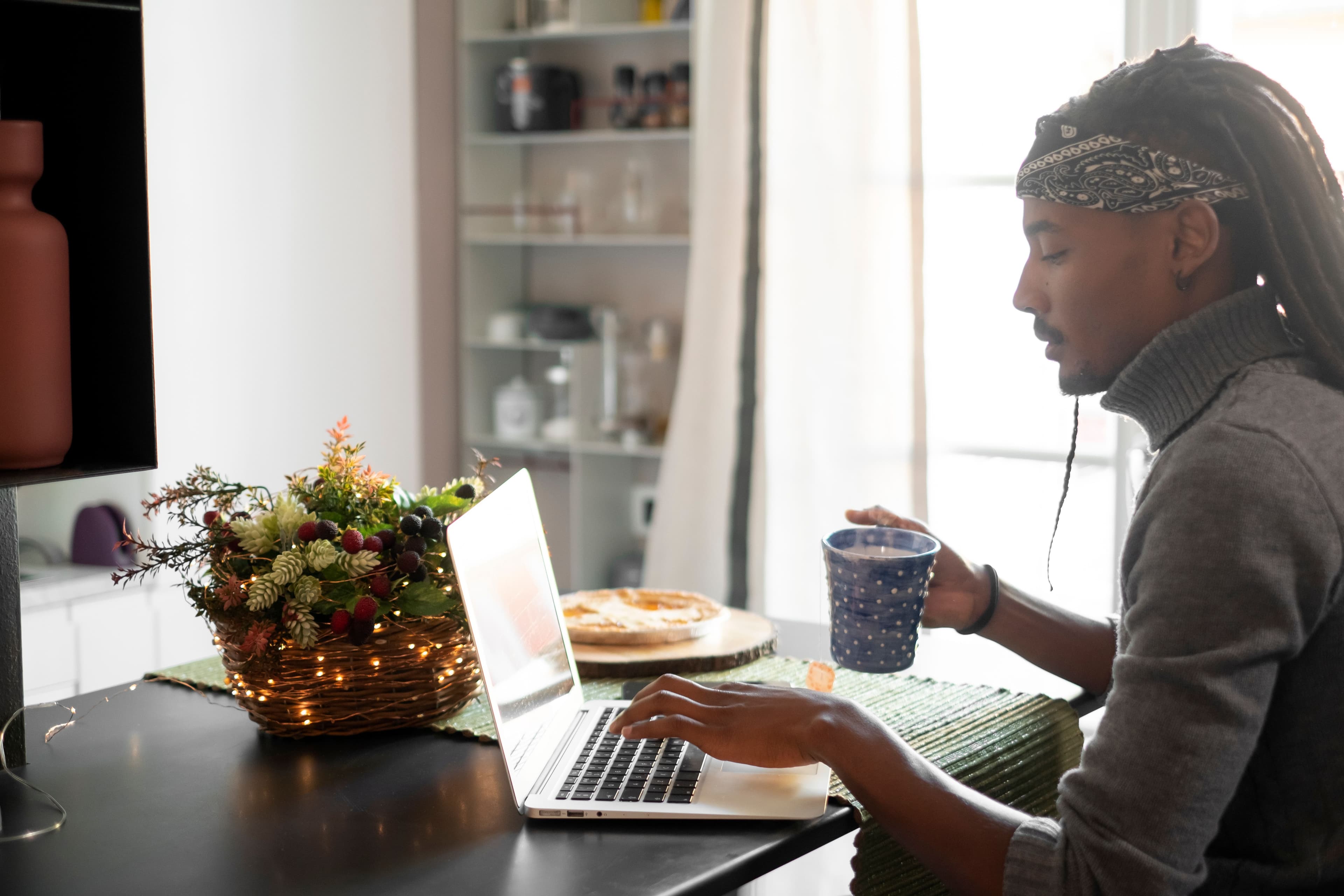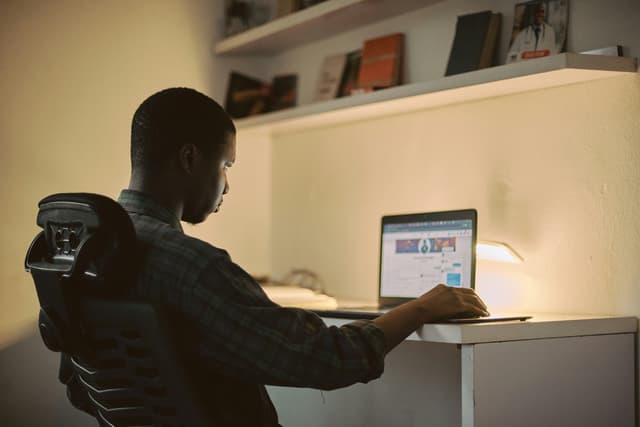Mental Health in the Digital Age: How Remote Work Can Make or Break Your Team's Well-being
Explore how remote work impacts mental health in the digital age—both positively and negatively—and learn practical tips to support your team’s well-being while working from anywhere.

Picture this: It's 9 AM on a Monday. Instead of battling traffic or cramming into a crowded subway, you're sipping coffee in your pajamas, laptop balanced precariously on your knees. The daily commute?
A mere 10 steps from your bed to your makeshift office. Welcome to the brave new world of remote work—a place where flexibility reigns supreme, but where the boundaries between professional and personal life have become increasingly blurred.
The Double-Edged Sword of Remote Work
Remote work has revolutionised our professional landscape, offering unprecedented flexibility and autonomy. Yet, as we navigate this digital frontier, we're discovering that working from home isn't all Zoom calls in sweatpants and midday laundry breaks.
The very technology that liberates us from the office can also become a digital prison, with consequences for our mental health that are only now coming into focus.
"I used to dream about working from home," says Maya, a graphic designer who went remote in 2023. "Now I sometimes find myself missing those water cooler moments—those snippets of human connection that broke up the day and reminded me I wasn't alone in my professional struggles."
When Home Becomes the Office: The Isolation Factor

For many remote workers, the most immediate mental health challenge is isolation. Humans are social creatures by nature, and the office environment, despite its flaws, provided a built-in social network. Without the natural interaction of an office setting, remote workers can experience:
- Increased feelings of loneliness
- Diminished sense of belonging
- Reduced opportunities for spontaneous collaboration
- Fewer moments of casual mentorship and learning
Research shows that prolonged isolation can lead to heightened anxiety and depression, with remote workers reporting higher rates of these conditions compared to their office-bound counterparts. The absence of physical proximity makes it harder to gauge a colleague's emotional state or offer timely support when someone is struggling.
Always On: The Burnout Epidemic
Perhaps the most insidious mental health risk of remote work is the dissolution of boundaries between work and home life. When your office is your living room, when does work end and life begin?
"I find myself checking emails at 11 PM, just because my laptop is right there," admits Jamal, a marketing specialist. "Before remote work, I'd leave my work at the office. Now, it follows me everywhere."
This "always on" culture has accelerated burnout across industries. Many remote workers report working longer hours than they did in the office, partly due to the perceived need to prove their productivity and partly because the normal signals to end the workday (colleagues leaving, offices closing) no longer exist.
The Freelancer's Perspective: Freedom and Precarity

For freelancers, the mental health equation is even more complex. While they enjoy greater autonomy than traditional employees, they also face unique stressors:
"The feast-or-famine cycle is brutal on your mental health," explains Elena, a freelance content writer. "One month you're turning down work, the next you're wondering how you'll pay rent. That financial instability takes a toll, even if you love the freedom."
Freelancers often lack the safety nets that protect traditional employees, such as sick leave, vacation time, and employer-provided health insurance. This precarity can exacerbate anxiety and make it harder to justify taking necessary mental health breaks.
From the Client Side: New Expectations, New Pressures
Clients and employers are navigating their own challenges in the remote work landscape. Many struggle with:
- Establishing appropriate expectations for availability
- Building genuine connections with remote team members
- Gauging team morale without face-to-face interaction
- Providing support without seeming intrusive
"As a manager, I worry about my team burning out," shares Marcus, a tech company director. "I can't see when someone is staying too late or looking stressed. Everyone's green dot on Slack looks the same, whether they're thriving or struggling."
How Do You Build a Healthier Remote Work Culture?
The good news? We're not doomed to poor mental health in the digital age. With intentional practices and policies, remote work can actually enhance well-being rather than diminish it.
For Employers and Clients
- Establish clear boundaries around work hours and respect them religiously
- Create virtual spaces for social connection that aren't focused on tasks
- Normalize conversations about mental health and make resources available
- Implement regular check-ins that go beyond project updates
- Encourage and model breaks from screens throughout the day
For Remote Workers and Freelancers
- Create physical separation between work and living spaces when possible
- Develop rituals that signal the beginning and end of the workday
- Prioritize face-to-face connection, even if it's just video calls
- Schedule movement throughout the day
- Build a support network of other remote professionals
How Do You Find Balance in the Digital Wilderness?
The future of work is undoubtedly digital, but that doesn't mean we must sacrifice our mental health on the altar of flexibility. The most successful remote teams recognise that well-being isn't just a nice-to-have perk—it's essential to sustainable productivity and creativity.
At Tammwe, we understand the unique challenges of navigating the digital workspace. Our platform connects freelancers and clients in ways that prioritise not just productivity, but genuine human connection and well-being.
Whether you're struggling to find work-life balance or looking to build a remote team that thrives, we're here to help you find your footing in this new landscape.
The digital age presents unprecedented opportunities for how we work, but the greatest innovation may be in how we care for ourselves and each other while doing so. After all, the most valuable resource in any workplace—remote or otherwise—isn't bandwidth or battery life. It's the human beings behind the screens.
Ready to build a healthier remote work experience? Discover how Tammwe can help you create connections that nourish both your career and your well-being.
0 comments
newest


